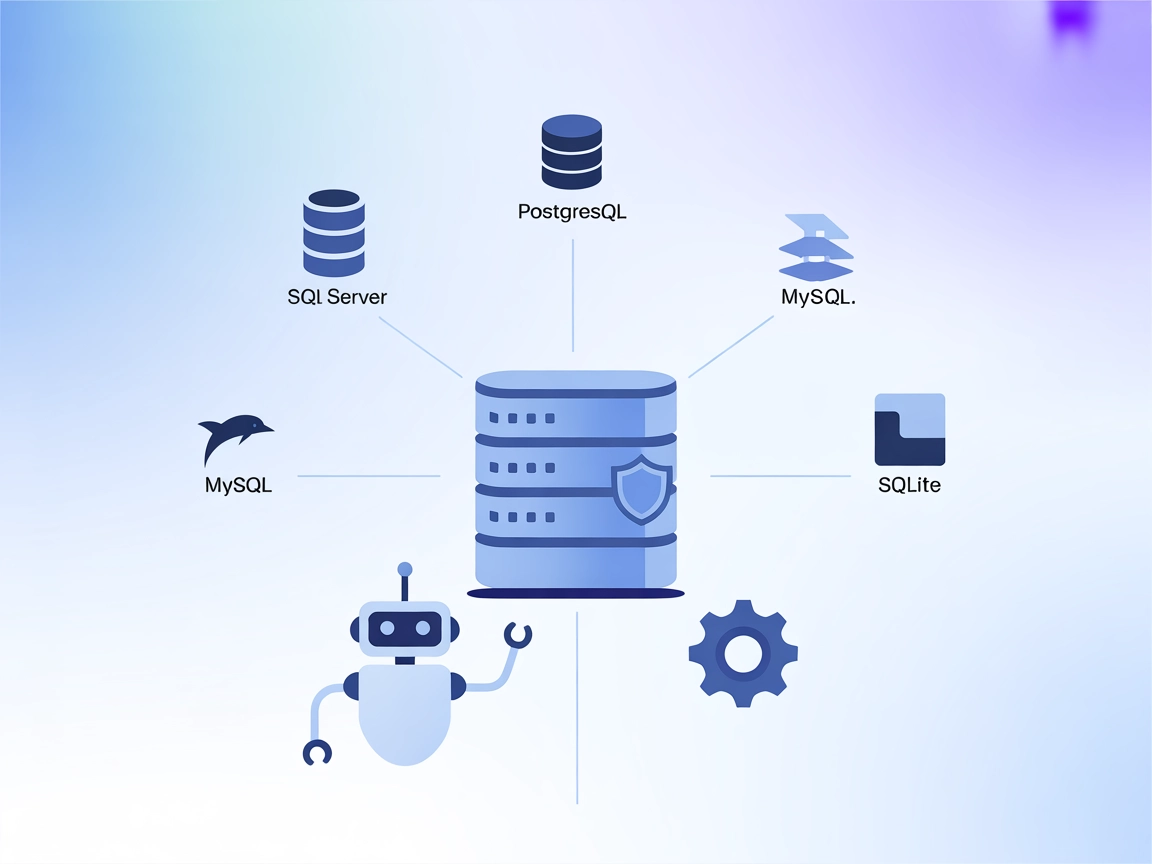
MCP Database Server
The MCP Database Server enables secure, programmatic access to popular databases like SQLite, SQL Server, PostgreSQL, and MySQL for AI assistants and automation...

Integrate secure, real-time OceanBase database operations into your AI flows with OceanBase MCP Server—structured, logged, and efficient.
FlowHunt provides an additional security layer between your internal systems and AI tools, giving you granular control over which tools are accessible from your MCP servers. MCP servers hosted in our infrastructure can be seamlessly integrated with FlowHunt's chatbot as well as popular AI platforms like ChatGPT, Claude, and various AI editors.
The OceanBase MCP Server is a Model Context Protocol (MCP) server designed to facilitate secure, structured interactions with OceanBase databases. By acting as a bridge between AI assistants and the OceanBase database, it enables tasks such as listing tables, reading data, and executing SQL queries within a controlled environment. This server enhances the safety and efficiency of database exploration and analysis by providing granular access control and comprehensive logging. Developers can leverage this MCP server to integrate real-time database operations into their AI workflows, allowing for dynamic data retrieval and manipulation without compromising security or data integrity.
No prompt templates are explicitly mentioned in the repository.
No Windsurf-specific setup instructions are provided in the repository.
pip install oceanbase-mcp-server
claude_desktop_config.json"mcpServers":{
"oceanbase": {
"command": "uv",
"args": [
"--directory",
"path/to/oceanbase_mcp_server",
"run",
"oceanbase_mcp_server"
],
"env": {
"OB_HOST": "localhost",
"OB_PORT": "2881",
"OB_USER": "your_username",
"OB_PASSWORD": "your_password",
"OB_DATABASE": "your_database"
}
}
}
No Cursor-specific setup instructions are provided in the repository.
No Cline-specific setup instructions are provided in the repository.
It is recommended to use environment variables for all sensitive credentials. Example:
"env": {
"OB_HOST": "localhost",
"OB_PORT": "2881",
"OB_USER": "your_username",
"OB_PASSWORD": "your_password",
"OB_DATABASE": "your_database"
}
Using MCP in FlowHunt
To integrate MCP servers into your FlowHunt workflow, start by adding the MCP component to your flow and connecting it to your AI agent:

Click on the MCP component to open the configuration panel. In the system MCP configuration section, insert your MCP server details using this JSON format:
{ “oceanbase”: { “transport”: “streamable_http”, “url”: “https://yourmcpserver.example/pathtothemcp/url" } }
Once configured, the AI agent is now able to use this MCP as a tool with access to all its functions and capabilities. Remember to change “oceanbase” to whatever the actual name of your MCP server instance is and replace the URL with your own MCP server URL.
| Section | Availability | Details/Notes |
|---|---|---|
| Overview | ✅ | |
| List of Prompts | ⛔ | No prompt templates found in the repo. |
| List of Resources | ✅ | Tables, table contents, and SQL query results are exposed as resources. |
| List of Tools | ✅ | List Tables, Read Table, Execute SQL Query. |
| Securing API Keys | ✅ | Environment variable usage is documented. |
| Sampling Support (less important in evaluation) | ⛔ | No mention of sampling support. |
Based on the available information, the OceanBase MCP Server provides clear database tools and resources, secure configuration guidance, and basic platform integration for Claude. However, it lacks explicit support for prompt templates, sampling, and multiple platform-specific setup instructions. Its open-source license and logging features are positives, but the scope is somewhat focused and not exhaustive.
This MCP server is robust for secure OceanBase database access in AI workflows, but is limited by lack of prompt/workflow templates and broader platform integration documentation. It scores well on clarity and security, but would benefit from expanded documentation and feature set.
| Has a LICENSE | ✅ |
|---|---|
| Has at least one tool | ✅ |
| Number of Forks | 3 |
| Number of Stars | 3 |
The OceanBase MCP Server is a Model Context Protocol server that connects AI assistants to OceanBase databases, enabling secure table listing, data reading, and SQL query execution with granular access control and logging.
It exposes tables, table contents, and SQL query results as resources. Tools include listing tables, reading tables, and executing SQL queries.
The server uses environment variables for sensitive credentials and logs all database operations, supporting traceability, compliance, and safe query execution.
Yes! Add the MCP component in your FlowHunt flow and configure it with your OceanBase MCP server URL. This gives your AI agents access to all database functions securely.
Use cases include secure database management, data analysis, automated reporting, safe query execution, and compliance auditing via logged access.
Empower your AI agents with secure, real-time database access. Integrate OceanBase MCP Server in your flows for safer data analysis, reporting, and compliance.

The MCP Database Server enables secure, programmatic access to popular databases like SQLite, SQL Server, PostgreSQL, and MySQL for AI assistants and automation...

The Model Context Protocol (MCP) Server bridges AI assistants with external data sources, APIs, and services, enabling streamlined integration of complex workfl...

The MSSQL MCP Server enables secure, auditable, and structured interaction between FlowHunt and Microsoft SQL Server databases. It supports table listing, data ...
Cookie Consent
We use cookies to enhance your browsing experience and analyze our traffic. See our privacy policy.